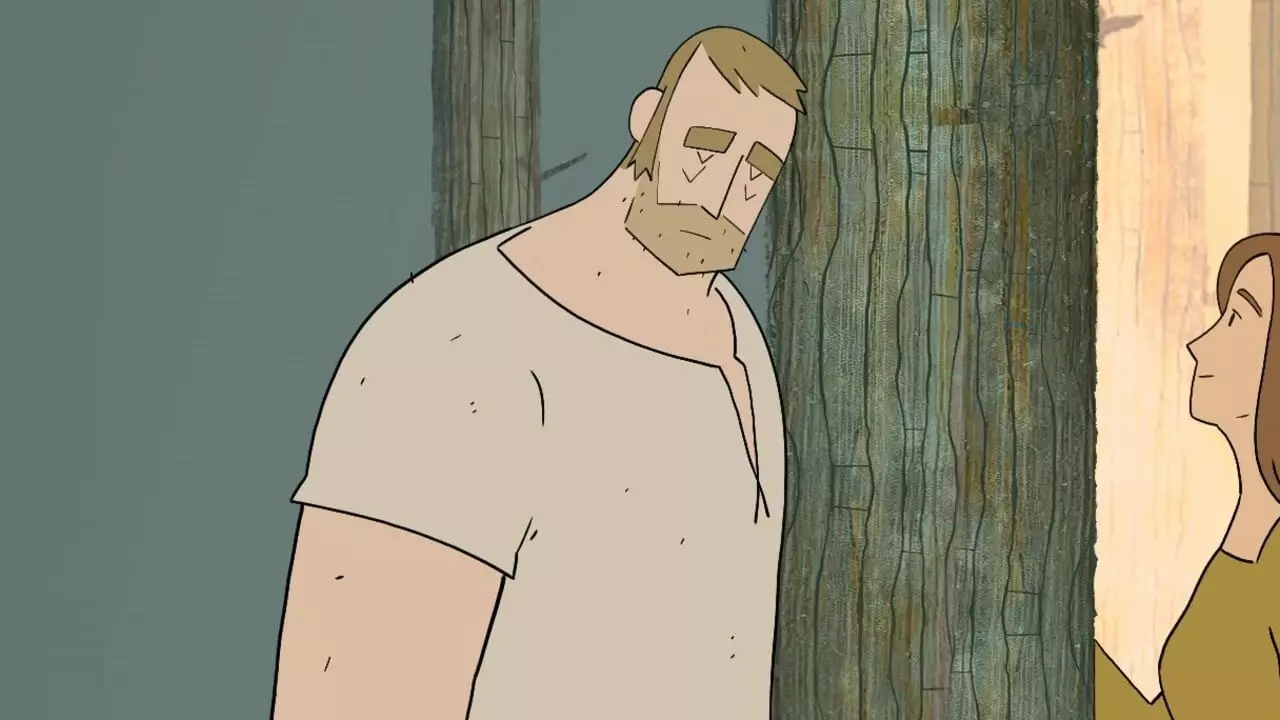The term “game” often evokes images of escapism and the light-hearted enjoyment we associate with fun activity. It conjures a world where competition, laughter, and friendly banter reign supreme. However, as the realm of gaming has expanded to include narratives reflecting complex human emotions and experiences, the concept of what constitutes a “game” has evolved significantly. Pine exemplifies this shift, embodying a tone that transcends the traditional bounds of gameplay. Its subtitle, “A Story of Loss,” signals audiences that they are about to embark on a solemn journey rather than a jovial escapade. This title offers an immediate insight into the serious narrative that unfolds throughout the experience.
At the heart of Pine lies a nameless protagonist whose life is layered with solitude and sorrow. Residing in a secluded forest clearing, he engages in repetitive, mundane tasks—chopping wood, tending to a modest vegetable garden, and crafting small sculptures of a lost love. This minimalistic lifestyle serves as a metaphorical backdrop against which his emotional turmoil plays out. Rather than typical game objectives that encourage competition or accolades, players are invited to witness the quiet, often heartbreaking existence of a man grappling with grief. It is refreshing yet profoundly melancholic, prompting players to reflect on their lives and the fragility of relationships.
The interactions within Pine highlight the game’s central themes of monotony and the struggle to move forward. Featuring touchscreen mechanics that require players to replicate actions—like swinging an axe or picking vegetables—the gameplay is purposefully designed to be simplistic. This intentional choice adds a layer of depth as it mirrors the protagonist’s own repetitive daily routine; each action feels heavy with the weight of his solitude. However, when played with a traditional controller, this tactile connection is diluted, reducing the experience to mere button pressing, which detracts from the contemplative atmosphere.
These gameplay mechanics have drawn criticism for lacking innovation and engagement. The gestures required may seem tedious or uninspired, reminiscent of countless other titles that have employed touch interactions. Furthermore, the game’s puzzle elements can feel disruptive, interrupting the narrative flow rather than enhancing it, which can frustrate players eager for a richer experience.
Despite these gameplay flaws, Pine thrives in its artistic presentation and sound design. The visuals are striking and evoke a sense of beauty within the protagonist’s simple life, with the lush forest landscape serving both as a sanctuary and a constant reminder of his isolation. The haunting soundtrack compliments this visual style perfectly. The ebb and flow of the music subtly enhances the emotional weight of the story, drawing players further into the protagonist’s melancholic world. In this way, the auditory experience becomes an integral part of the storytelling, inviting players to embrace the emotions at the forefront of the narrative.
As players navigate through two hours of gameplay, the recurring themes of grief and longing are palpable. The protagonist’s monotonous tasks resonate deeply, echoing the sentiment often felt in real-life experiences of loss: that of just existing. The game encapsulates a feeling of lingering sadness, presenting an unvarnished portrayal of grief that challenges traditional narratives of resolution. In this nuanced exploration of loss, Pine suggests that moving on does not equate to forgetting; rather, it is a process fraught with emotional complexity that takes time and patience.
Ultimately, Pine is not merely an interactive game nor a simple tale; it is an evocative journey worth experiencing. Those looking for a light-hearted gaming experience may be disappointed, as Pine’s narrative demands patience and introspection. In a gaming landscape filled with fast-paced action and cheerful escapes, Pine stands out as a poignant reminder of the profound impact of loss, making it a noteworthy title for those willing to explore its depths.


Leave a Reply